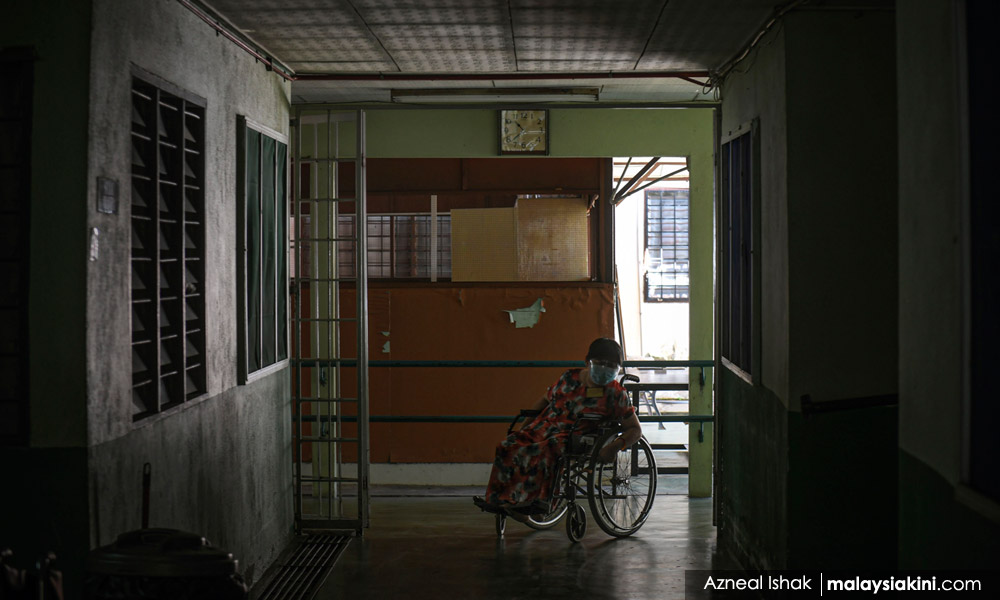MP SPEAKS | The ageing population is not a new issue. It is merely a long-neglected issue.
It has never been given due attention because in the eyes of most people, including decision-makers in the government, the ageing population is only about the welfare of the aged, and to those in power, old people are a bad investment.
But the fact is the ageing population is not just about the problem of the aged. It is about the economy of a nation.
The latest Population and Housing Census Malaysia showed that in 2021, people aged 65 and above constitute 7 percent of our total population and 7.4 percent in 2022.In another 10 years, our country will be migrating to an ageing society. At the same time, our fertility rate is on the decline. In 2021, the fertility rate of women within reproductive age has gone down to 1.9, which is lower than the minimum replacement rate of 2.1.
Impact of ageing population
According to a study on The Impact of Ageing Population on Malaysian Economic Growth, the dependency ratio will reach 49.5 by the year 2040, ie. for every 100 productive workers, there would be 49.5 non-productive children and old people who need their support. Is this a burden that our society can handle?

Today, only 16.5 percent of the 15 million workforce in the country are subjected to income tax.
When the number of people outside the workforce increases far exceeding the number of tax contributors, which is inevitable in an ageing nation, we may no longer be able to afford free education and healthcare, low-cost public housing and regular maintenance of public amenities.
The ageing population does not only affect the quality of life but is also detrimental to the economy. The inevitable consequences of reduced savings and investments in an ageing nation are slow economic development and job creation.
Ageing nations such as Japan and some advanced European countries have had to resort to importing young migrant workers to boost up productivity and maintain continuous economic development.
If Malaysia fails to strengthen its economy in the next 10 years and is unprepared to deal with our ageing population, the nation will fall into perpetual poverty.
There are basically two aspects we need to tackle with regards to the ageing population. Firstly, the strengthening of social and financial security systems for the aged; and secondly, the minimisation of its negative impact on the economy by increasing productivity and reducing the dependency ratio.
Review social security
We will soon be facing the problems and crises of an ageing population. Yet the government’s response to it has been rather apathetic despite the numerous warnings from research studies and statistical analyses.

There is no long-term plan in view to deal with the negative economic impact arising from our ageing population. Even the welfare programs for the aged are clearly insufficient.
For instance, the monthly RM300 financial aid to the poor old folks could barely pay for living expenses; and the 2022 budget allocation for old folks homes and recreation centres is only RM27 million.
Another example that shows how little concern the government has for old age security is the release of EPF funds to contributors to pay for their living expenses during the pandemic.
According to EPF statistics, 70 percent of the contributors use up all their EPF savings in the first 10 years of their retirement and that 70 percent have only less than RM1,000 in their accounts. After the withdrawal, how much then will they have left for retirement?
Today only 14 million workers are contributing to EPF. The vast majority of the remaining non-contributors are already in the B40 group and surviving old age will be a big challenge to them. The indisputable fact is that most retirees will become poor upon retirement.
Different countries have different ways of handling their ageing population problems. Many advanced countries such as Australia, Canada and some European countries provide additional old-age pension besides the usual employee provident funds.
Such old-age pension is fully funded by the government and the individual does not need to make any contribution. However, to be able to do that, these countries must levy very high-income tax, some even as high as 56 percent.
India and Singapore, on the other hand, enacted laws to make it mandatory for children to fund their parents’ retirement.
Malaysia is a developing country, and our old age security system may not be comparable to more advanced and developed countries.
What is certain, though, is that Malaysia cannot continue to keep the big number of self-employed and dependents out of the old age security system. The old age security system in the country needs reform and we need to create a better balance between economic growth and a better old age security system.

Political will
The ageing population problem is muti-dimensional. It cannot be resolved by just building a few senior citizen recreation centres or old folks’ homes.
Any serious and meaningful attempt to address the problem must necessarily touch on the taxation system, national budgets, retirement schemes, city structure, healthcare system and legislation.
We have sufficient statistics and research studies to guide us in making good decisions.
What we lack is the political will and an inter-ministerial body to formulate strategies and plans, and later to monitor its implementation and execution.
When the whole nation is talking about the importance and potential of young voters, it may be out of tune and politically untimely to bring out the ageing population problems.
However, in 10 years’ time, the 18-year-old voters of today will have to face the economic pressure and hardships of an ageing population. What answer do we have for them? - Mkini
DR TAN YEE KEW is PKR's Member of Parliament for Wangsa Maju.
The views expressed here are those of the author/contributor and do not necessarily represent the views of MMKtT.




No comments:
Post a Comment
Note: Only a member of this blog may post a comment.